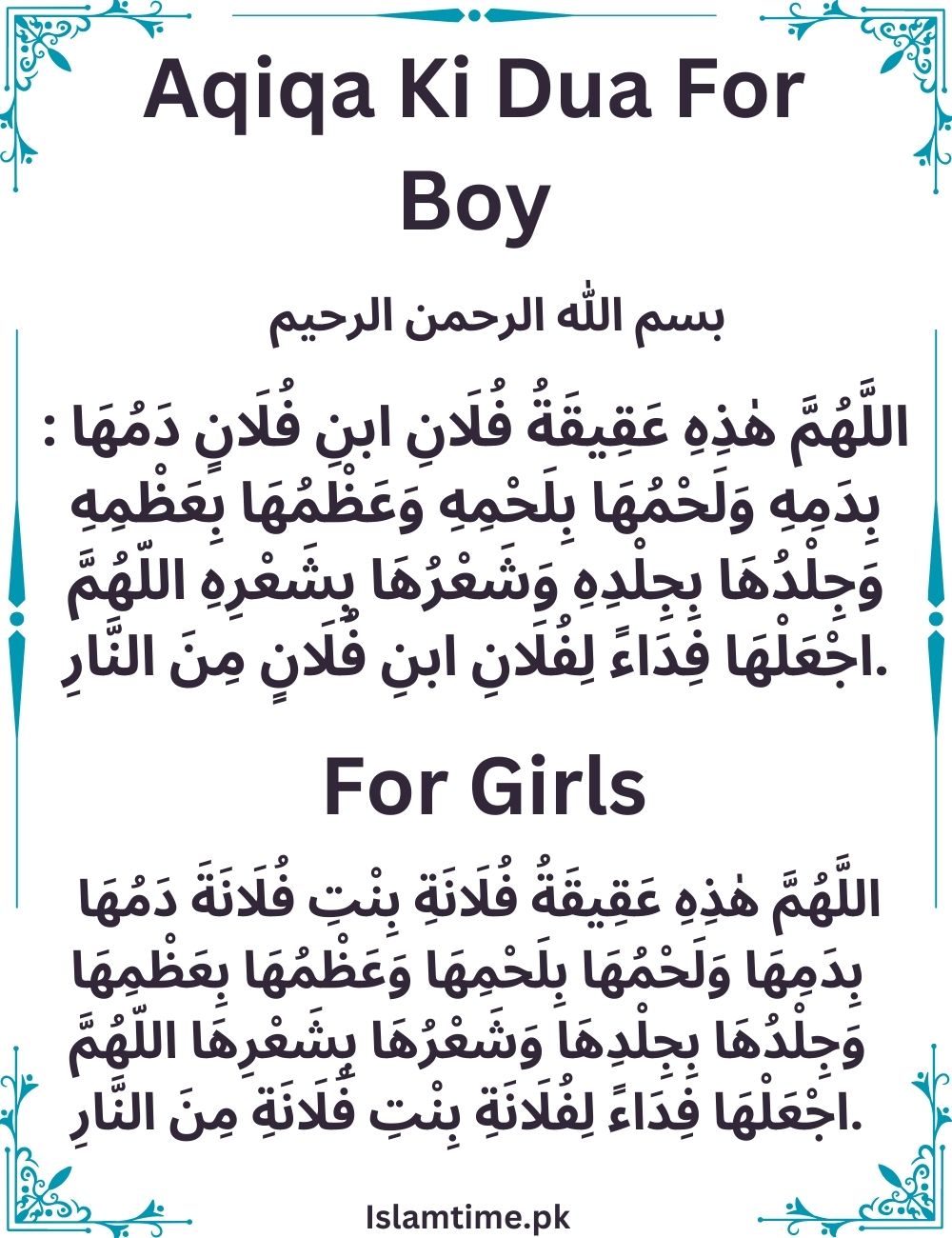Aqiqa Ki Dua in Islam Ladki aur Ladke Ke Liye (عقیقہ کی دعا)
The practice of “Aqiqa” in Islam is a significant Sunnah that involves offering a sacrifice to express gratitude to Allah for the birth of a child. This practice also serves as a means to seek Allah’s protection and blessings for the newborn. There is some difference between “Aqiqa ki dua for Boy” and “Aqiqa ki dua for Girl”, you have to read it carefully. It is mentioned below:

Aqiqa is a Sunnah practice established by the Prophet Muhammad (peace be upon him) to celebrate the birth of a child. It involves the slaughtering of animals, typically sheep or goats, on behalf of the newborn. Aqiqa is traditionally performed on the seventh day after the birth of the child. If it is not possible to perform it on the seventh day, it can be done on the 14th, 21st day, or whenever it is feasible.
Sunnah Practices Associated with Aqiqa
- Shaving the Baby’s Head: On the seventh day, the baby’s head is shaved, and the hair’s weight in silver is given as charity.
- Naming the Child: The child is often named on the seventh day, coinciding with the aqiqa ceremony.
Steps to Perform Aqiqa
- Recite the Dua: At the time of slaughter, recite the aqiqa dua, mentioning the child’s name.
- Perform the Sacrifice: Slaughter the animal(s) in accordance with Islamic guidelines, ensuring it is done humanely.
- Distribute the Meat: Divide the meat into three parts:
- One part for the family.
- One part for friends and relatives.
- One part for the poor and needy.
Number of Animals to be Sacrificed
- For a Boy: Two sheep or goats.
- For a Girl: One sheep or goat.
This difference is based on the Hadith of the Prophet Muhammad (peace be upon him) where he specified two animals for boys and one for girls. But you can also do Aqiqah according to your capability.
Purpose of Aqiqa
- Expression of Gratitude: Aqiqa is a way to thank Allah for the gift of a child.
- Seeking Blessings: The sacrifice is made to seek Allah’s blessings and protection for the newborn.
- Charity and Sharing: The meat from the sacrifice is distributed among family, friends, and the needy, fostering a sense of community and charity.
Benefits (فضائل)
- By distributing the meat to the poor, Aqiqa encourages acts of charity and compassion, integral values in Islam.
- Performing Aqiqa serves as an educational experience for the family, especially children, teaching them about Islamic practices, charity, and community values.
- Following the prophetic tradition, Aqiqa is a Sunnah Mu’akkadah (an emphasized Sunnah) that was practiced by Prophet Muhammad (peace be upon him) and instructed to his followers.
- Through Aqiqa, parents seek Allah’s protection and blessings for their child, ensuring spiritual safeguarding from harm.
- Aqiqa is a joyous occasion that allows the family to celebrate the birth of the child with their community, promoting social harmony and happiness.
Conclusion
The aqiqa ki dua is an integral part of the aqiqa ceremony, emphasizing gratitude to Allah and seeking His blessings for the child. This practice not only fulfills a Sunnah but also encourages charity and community bonding. By reciting the dua and performing the sacrifice, parents express their thankfulness and devotion to Allah, setting a positive spiritual foundation for the child’s life.